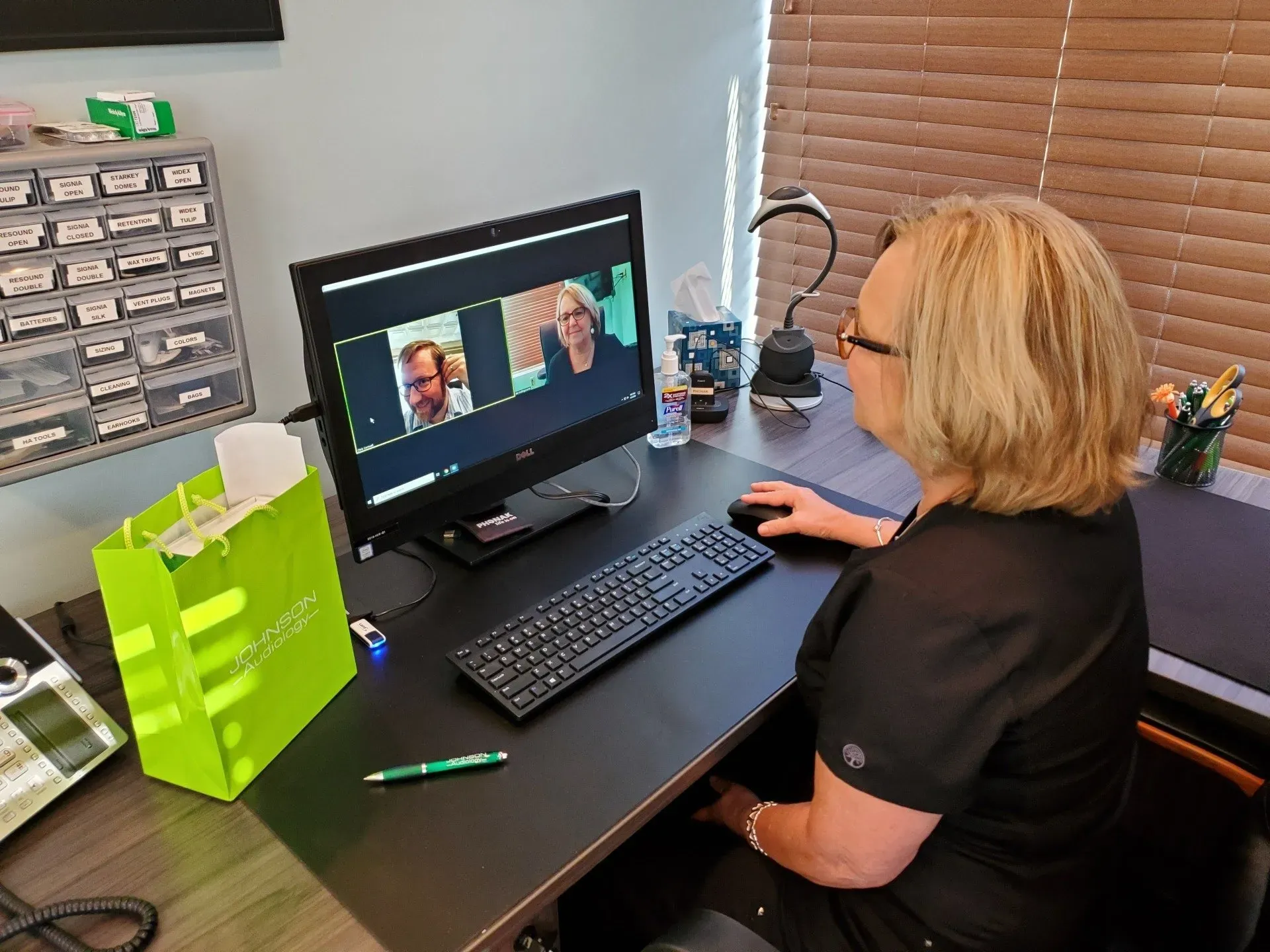Maintaining Healthy Hearing During Times of Upheaval

The world has changed significantly in a short period of time as COVID-19 has touched people’s lives in various ways. Additionally, many have been affected by severe weather in the Chattanooga area. Dr. Megan Johnson, audiologist and founder of Johnson Audiology, noted, “In these difficult times, healthy hearing is a must as we all seek to establish our new normal and stay informed and connected. At Johnson Audiology, we remain committed to helping people engage with their world through hearing, especially during emergencies.”
As we all seek to adapt to global and local stressors and struggles, maintaining healthy hearing is challenging but critical. Here are some tips for success.
Address your hearing loss now rather than later
During times of crisis, it is paramount to hear. Consider this. Do you want to miss that crucial broadcast across your weather radio telling you to get to your safe place or not hear that essential instruction from your doctor if you are admitted to the hospital? In critical times, hearing could be a matter of life or death. If you have been putting off getting a hearing test, resolve now to make an appointment and begin your journey on the road to healthy hearing. For those who already have hearing aids, getting your hearing periodically re-tested helps monitor any changes in your hearing and allows you to get the most out of your hearing aids in case a programming adjustment is needed because your hearing has changed.
Assemble a hearing emergency kit
Many these days recognize that it is imperative to develop a family emergency plan to keep your family safe. If someone in your family wears hearing aids, be sure that those unique needs are factored into your emergency kit. Always have at least a two-month supply of batteries and other hearing aid supplies on hand. Consider having a back-up set of hearing aids in case your primary set is lost or damaged during an emergency or a shelter-at-home mandate prevents you from making your usual trip to your audiologist for a quick repair. Keep your hearing aids clean and in good working order by visiting your audiologist for regular maintenance appointments and by learning basic cleaning tips you can do at home on a weekly basis. If you use rechargeable hearing aids, talk with your audiologist about techniques for extending your hearing aids’ charge. For instance, some of today’s hearing aid recharging stations are designed to maintain their charge when you unplug them or the power goes out. It might also be a good idea to purchase a second charging station to have on hand for emergencies, or even long weekend trips, to give you double the charging capability. Dr. Johnson says, “We had several patients affected by the Easter weekend tornado, and those who were most successful were the ones who had taken their hearing needs into account and had planned ahead.”
Make time to stay healthy, de-stress and unwind
All of us have heard the benefits of eating a nutritious, well-balanced diet, exercising regularly, and taking steps to de-stress and unwind. These tips for healthy living are especially beneficial when larger issues on the world and local stage lead to a sense of unease. But did you know that taking these health-conscious steps can actually improve your hearing health? Simple workouts, for instance, help keep blood flowing throughout your body, including to your ears. Dr. Johnson noted that “the inner ear is extremely sensitive to blood flow, and a healthy cardiovascular system has a positive effect on hearing. Conversely, inadequate blood flow to the vessels in the inner ear can contribute to hearing loss.” She also mentioned that a healthy diet provides a source of vitamins, minerals and other nutrients that are essential for the long-term health of your ears. Along with exercise, good nutrition fuels the high metabolic needs of the inner ear with oxygen and energy. What about stress? For those with conditions like ringing in their ears, also known as tinnitus, stress can greatly intensify the condition. Plus, social distancing is now recommended, but prolonged isolation can lead to anxiety and depression. The American Tinnitus Association offers these tips to de-stress and unwind that can serve all of us well during this time of unease. 1) Curate a soothing soundscape, using such tools as apps or music streaming services that can be tailored to your preferences, table-top sound generators, and pillows with speakers. 2) Meditate to focus your awareness to help the mind and body relax. Utilize apps that offer short, guided meditations that will bring awareness to breathing, thinking, and calming the mind. 3) Learn how to master relaxing breathing. This is a tool that takes time to cultivate so begin practicing today. Follow these steps: Exhale completely through your mouth, then seal your lips. Inhale through your nose to a mental count of four. Hold your breath for a count of seven. Exhale through your mouth to a count of eight. Inhale again and repeat the cycle three more times.
Stay connected with the people in your life
With today’s technology, staying connected with the people in your life has never been easier, more accessible, or affordable. Video calls are preferable to audio-only calls because they allow those with hearing loss to see the speaker’s lips moving, which often aids in speech understanding. Plan to speak to a family member or friend each day by video chat to stay connected, upbuilt and engaged. For those working from home, video conferencing can allow a virtual face-to-face meeting for project collaboration and document sharing. Many of these video conferencing services—like FaceTime, Facebook Messenger, Zoom, and Skype—are available at no cost. “Johnson Audiology hosted an Ask Our Audiologists online seminar recently utilizing Zoom, and patients had the opportunity to gather vital information about hearing health and pose questions directly to our audiologists. We will offer these opportunities throughout the remainder of 2020 and beyond,” Dr. Johnson said. Also, explore options that your medical professionals offer for telehealth using video conferencing options like those previously mentioned. “We encourage our patients to contact us to inquire about telehealth appointments.” If video conferencing just is not your cup of tea, talk with your audiologist about a caption call phone, which you can receive at no cost. “Johnson Audiology works with several of the national caption call phone companies. We can get you set up with an appointment for installation of a caption call phone, and the companies offer excellent in-home training and 24-hour support,” Dr. Johnson stated.
Events unfolding globally and locally are making life more challenging for everyone, but you can and should still prioritize your hearing health. With flexibility, creativity, and a willingness to try new communication technology and life techniques, you easily can stay in touch with your audiologist and successfully maintain your hearing health.




